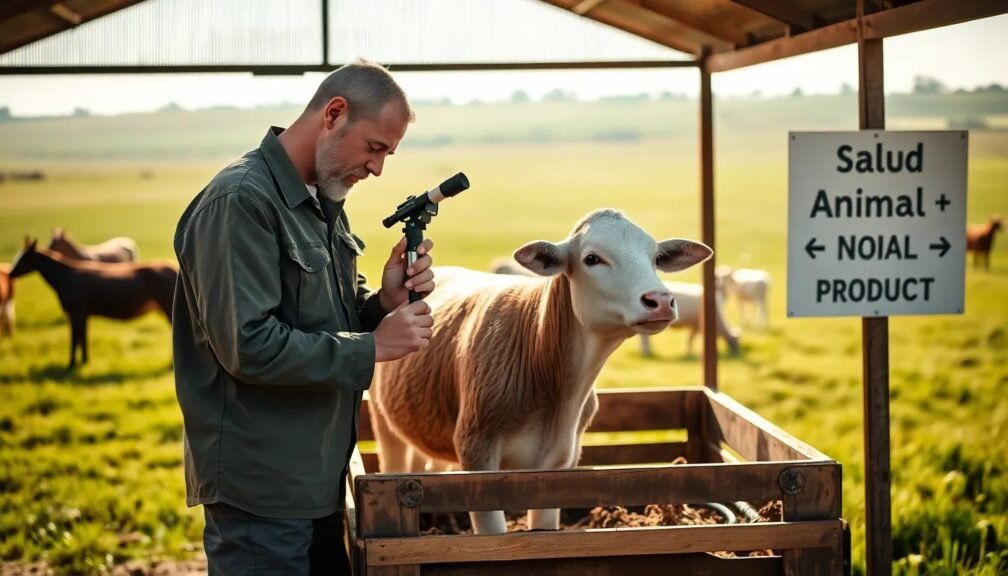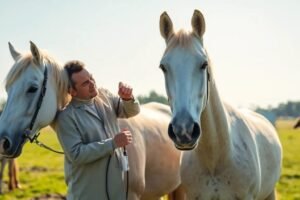Vétérinaire rural: Importance of Animal Health in Farming

In the vast, sprawling landscapes of rural communities, agriculture forms the backbone of livelihoods and economies. At the heart of this crucial sector lies a vital component: animal health. In the realm of farming, a vétérinaire rural plays an indispensable role in ensuring the well-being of livestock, which in turn affects the productivity and sustainability of farming operations. This article will explore the key responsibilities of a rural veterinarian, the significance of animal health, and the lasting impact they have on farming communities.
The Role of a Vétérinaire Rural
A vétérinaire rural is not just a medical professional; they are a cornerstone of agricultural success. Their primary responsibilities include:
1. Health Monitoring and Disease Prevention
One of the foremost duties of a rural veterinarian is conducting regular health assessments of livestock. This includes vaccinations, routine check-ups, and preventive care. By implementing disease prevention strategies, a vétérinaire rural can significantly reduce the incidence of outbreaks that could devastate herds and impact farmers’ livelihoods.
2. Emergency Care
In any farming environment, emergencies are unavoidable. Whether it’s an acute illness or injury, rural veterinarians are often the first line of defense. Their expertise allows the timely intervention needed to save animals and minimize economic loss.
3. Advise on Nutritional Needs
A vétérinaire rural also plays a crucial role in advising farmers about the nutritional requirements of their animals. Proper nutrition is fundamental for growth, productivity, and reproductive success. These veterinarians help formulate feeding programs tailored to individual farm scenarios, ensuring healthy livestock.
4. Education and Training
Beyond direct care, rural veterinarians educate farmers on best practices in animal husbandry. This includes training on biosecurity measures, improving housing conditions, and recognizing the early signs of illness. The dissemination of knowledge empowers farmers, allowing them to take proactive measures in managing the health of their livestock.
5. Research and Development
Veterinarians are often involved in research to enhance animal health protocols and practices. Staying updated on the latest advancements in veterinary medicine, a vétérinaire rural contributes to innovations that can lead to improved animal welfare and farming success.
Importance of Animal Health in Farming
Animal health is not just a personal concern for farmers; it has far-reaching consequences on the entire agricultural ecosystem. Here, we detail some compelling reasons why animal health must be a priority in farming.
1. Economic Stability
Healthy animals directly contribute to the profitability of farming. Livestock that are well-cared for are more productive, producing higher yields of meat, milk, and eggs. This economic stability allows farmers to invest in their operations, ensuring both short-term gains and long-term sustainability.
2. Food Safety
The health of farm animals has a direct correlation with food safety. Ill animals can be carriers of zoonotic diseases, which pose risks to human health. By ensuring animal health through routine checks and proper veterinary care, farmers can contribute to a safer food supply.
3. Environmental Impact
Healthy livestock are more efficient in feed conversion, leading to reduced waste and a lower environmental footprint. Moreover, effective veterinary care reduces the need for antibiotics and other pharmaceuticals, promoting responsible farming practices that are better for the planet.
4. Enhanced Welfare
Animal welfare is becoming increasingly important in the farming sector. A vétérinaire rural advocates for practices that enhance the quality of life for farm animals, ensuring they are treated humanely. Better welfare standards lead to healthier animals, reinforcing the cycle of productivity and safety.
5. Community Reputation
Farmers who prioritize animal health through proper veterinary care often enjoy a solid reputation within their communities. This not only fosters trust among consumers but can also assist in building new business relationships and avenues for collaboration.
The Challenges Facing Rural Veterinarians
While the importance of a vétérinaire rural cannot be overstated, they do face several challenges in their line of work.
1. Limited Resources
Many rural veterinarians operate in areas with limited access to veterinary supplies and facilities. This can make it difficult to provide comprehensive care and solutions to farmers.
2. Geographic Isolation
Rural areas can be expansive, and farmers may be geographically isolated from their veterinarians. This can lead to delays in receiving care during emergencies, underscoring the need for proactive health management plans.
3. Changing Regulations
As agricultural practices evolve, so do regulations. Veterinarians must stay informed and adapt to changing laws regarding animal treatment, medications, and reporting requirements.
4. Financial Constraints
Many farmers operate on tight budgets, which can limit their ability to invest in veterinary services. Educating them on the long-term cost-benefits of regular veterinary care is crucial.
Conclusion: Moving Forward with a Focus on Animal Health
The role of a vétérinaire rural is crucial in maintaining animal health and ensuring the stability of farming operations. To optimize the benefits of veterinary services, farmers must cultivate a partnership with their rural veterinarians, acting as collaborative stakeholders in the health of their livestock.
Actionable Insights
-
Engage with Your Vétérinaire Rural: Regularly schedule health check-ups for your animals and invite your veterinarian to advise on best practices.
-
Implement Biosecurity Measures: Work with your veterinarian to establish rigorous biosecurity practices to prevent disease outbreaks.
-
Educate Yourself: Take advantage of training sessions offered by veterinarians to become more informed about animal care and health management.
-
Prioritize Nutrition: Consult with your rural veterinarian about optimized feeding programs tailored to your livestock’s needs.
- Stay Informed on Regulations: Make it a point to keep abreast of changes in veterinary laws and guidelines that can affect your farm.
By fostering strong relationships with vétérinaires ruraux and prioritizing animal health, farmers can secure a thriving agricultural future that benefits their communities, economies, and the environment.






